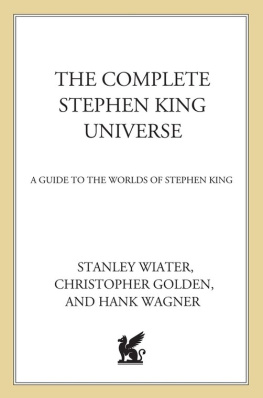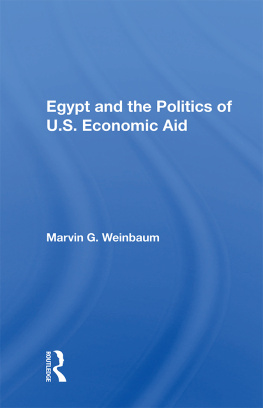Stanley Weinbaum - The Worlds of If
Here you can read online Stanley Weinbaum - The Worlds of If full text of the book (entire story) in english for free. Download pdf and epub, get meaning, cover and reviews about this ebook. genre: Science fiction. Description of the work, (preface) as well as reviews are available. Best literature library LitArk.com created for fans of good reading and offers a wide selection of genres:
Romance novel
Science fiction
Adventure
Detective
Science
History
Home and family
Prose
Art
Politics
Computer
Non-fiction
Religion
Business
Children
Humor
Choose a favorite category and find really read worthwhile books. Enjoy immersion in the world of imagination, feel the emotions of the characters or learn something new for yourself, make an fascinating discovery.

- Book:The Worlds of If
- Author:
- Genre:
- Rating:3 / 5
- Favourites:Add to favourites
- Your mark:
- 60
- 1
- 2
- 3
- 4
- 5
The Worlds of If: summary, description and annotation
We offer to read an annotation, description, summary or preface (depends on what the author of the book "The Worlds of If" wrote himself). If you haven't found the necessary information about the book — write in the comments, we will try to find it.
The Worlds of If — read online for free the complete book (whole text) full work
Below is the text of the book, divided by pages. System saving the place of the last page read, allows you to conveniently read the book "The Worlds of If" online for free, without having to search again every time where you left off. Put a bookmark, and you can go to the page where you finished reading at any time.
Font size:
Interval:
Bookmark:
The Worlds of If
by Stanley Grauman Weinbaum
I stopped on the way to the Staten Island Airport to call up, and that was a mistake, doubtless, since I had a chance of making it otherwise. But the office was affable. "We'll hold the ship five minutes for you," the clerk said. "That's the best we can do."
So I rushed back to my taxi and we spun off to the third level and sped across the Staten bridge like a comet treading a steel rainbow. I had to be in Moscow by evening, by eight o'clock, in fact, for the opening of bids on the Ural Tunnel. The Government required the personal presence of an agent of each bidder, but the firm should have known better than to send me, Dixon Wells, even though the N. J. Wells Corporation is, so to speak, my father. I have a well, an undeserved reputation for being late to everything; something always comes up to prevent me from getting anywhere on time. It's never my fault; this time it was a chance encounter with my old physics professor, old Haskel van Manderpootz. I couldn't very well just say hello and good-bye to him; I'd been a favorite of his back in the college days of 2014.
I missed the airliner, of course. I was still on the Staten Bridge when I heard the roar of the catapult and the Soviet rocket Baikal hummed over us like a tracer bullet with a long tail of flame.
We got the contract anyway; the firm wired our man in Beirut and he flew up to Moscow, but it didn't help my reputation. However, I felt a great deal better when I saw the evening papers; the Baikal, flying at the north edge of the eastbound lane to avoid a storm, had locked wings with a British fruitship and all but a hundred of her five hundred passengers were lost. I had almost become "the late Mr. Wells" in a grimmer sense.
I'd made an engagement for the following week with old van Manderpootz. It seems he'd transferred to N.Y.U. as head of the department of Newer Physics that is, of Relativity. He deserved it; the old chap was a genius if ever there was one, and even now, eight years out of college, I remember more from his course than from half a dozen calculus, steam and gas, mechanics, and other hazards on the path to an engineer's education. So on Tuesday night I dropped in an hour or so late, to tell the truth, since I'd forgotten about the engagement until mid-evening.
He was reading in a room as disorderly as ever. "Humph!" he grunted. "Time changes everything but habit, I see. You were a good student, Dick, but I seem to recall that you always arrived in class toward the middle of the lecture."
"I had a course in East Hall just before," I explained. "I couldn't seem to make it in time."
"Well, it's time you learned to be on time," he growled. Then his eyes twinkled. "Time!" he ejaculated. "The most fascinating word in the language. Here we've used it five times (there goes the sixth time and the seventh!) in the first minute of conversation; each of us understands the other, yet science is just beginning to learn its meaning. Science? I mean that I am beginning to learn."
I sat down. "You and science are synonymous," I grinned. "Aren't you one of the world's outstanding physicists?"
"One of them!" he snorted. "One of them, eh! And who are the others?"
"Oh, Corveille and Hastings and Shrimski "
"Bah! Would you mention them in the same breath with the name of van Manderpootz? A pack of jackals, eating the crumbs of ideas that drop from my feast of thoughts! Had you gone back into the last century, now had you mentioned Einstein and de Sitter there, perhaps, are names worthy to rank with (or just below) van Manderpootz!"
I grinned again in amusement. "Einstein was considered pretty good, wasn't he?" I remarked. "After all, he was the first to tie time and space to the laboratory. Before him they were just philosophical concepts."
"He didn't!" rasped the professor. "Perhaps, in a dim, primitive fashion, he showed the way, but I I, van Manderpootz am the first to seize time, drag it into my laboratory, and perform an experiment on it."
"Indeed? And what sort of experiment?"
"What experiment, other than simple measurement, is it possible to perform?" he snapped.
"Why I don't know. To travel in it?"
"Exactly."
"Like these time-machines that are so popular in the current magazines? To go into the future or the past?"
"Bah! Many bahs! The future or the past pfui! It needs no van Manderpootz to see the fallacy in that. Einstein showed us that much."
"How? It's conceivable, isn't it?"
"Conceivable? And you, Dixon Wells, studied under van Manderpootz!" He grew red with emotion, then grimly calm. "Listen to me. You know how time varies with the speed of a system Einstein's relativity."
"Yes."
"Very well. Now suppose then that the great engineer Dixon Wells invents a machine capable of traveling very fast, enormously fast, nine-tenths as fast as light. Do you follow? Good. You then fuel this miracle ship for a little jaunt of a half million miles, which, since mass (and with it inertia) increases according to the Einstein formula with increasing speed, takes all the fuel in the world. But you solve that. You use atomic energy. Then, since at nine-tenths light-speed, your ship weighs about as much as the sun, you disintegrate North America to give you sufficient motive power. You start off at that speed, a hundred and sixty-eight thousand miles per second, and you travel for two hundred and four thousand miles. The acceleration has now crushed you to death, but you have penetrated the future." He paused, grinning sardonically. "Haven't you?"
"Yes."
"And how far?"
I hesitated.
"Use your Einstein formula!" he screeched. "How far? I'll tell you. One second!" He grinned triumphantly. "That's how possible it is to travel into the future. And as for the past in the first place, you'd have to exceed light-speed, which immediately entails the use of more than an infinite number of horsepowers. We'll assume that the great engineer Dixon Wells solves that little problem too, even though the energy out-put of the whole universe is not an infinite number of horsepowers. Then he applies this more than infinite power to travel at two hundred and four thousand miles per second for ten seconds. He has then penetrated the past. How far?"
Again I hesitated.
"I'll tell you. One second!" He glared at me. "Now all you have to do is to design such a machine, and then van Manderpootz will admit the possibility of traveling into the future for a limited number of seconds. As for the past, I have just explained that all the energy in the universe is insufficient for that."
"But," I stammered, "you just said that you "
"I did not say anything about traveling into either future or past, which I have just demonstrated to you to be impossible a practical impossibility in the one case and an absolute one in the other."
"Then how do you travel in time?"
"Not even van Manderpootz can perform the impossible," said the professor, now faintly jovial. He tapped a thick pad of typewriter paper on the table beside him. "See, Dick, this is the world, the universe." He swept a finger down it. "It is long in time, and" sweeping his hand across it "it is broad in space, but" now jabbing his finger against its center "it is very thin in the fourth dimension. Van Manderpootz takes always the shortest, the most logical course. I do not travel along time, into past or future. No. Me, I travel across time, sideways!"
I gulped. "Sideways into time! What's there?"
"What would naturally be there?" he snorted. "Ahead is the future; behind is the past. Those are real, the worlds of past and future. What worlds are neither past nor future, but contemporary and yet extemporal existing, as it were, in time parallel to our time?"
Font size:
Interval:
Bookmark:
Similar books «The Worlds of If»
Look at similar books to The Worlds of If. We have selected literature similar in name and meaning in the hope of providing readers with more options to find new, interesting, not yet read works.
Discussion, reviews of the book The Worlds of If and just readers' own opinions. Leave your comments, write what you think about the work, its meaning or the main characters. Specify what exactly you liked and what you didn't like, and why you think so.



